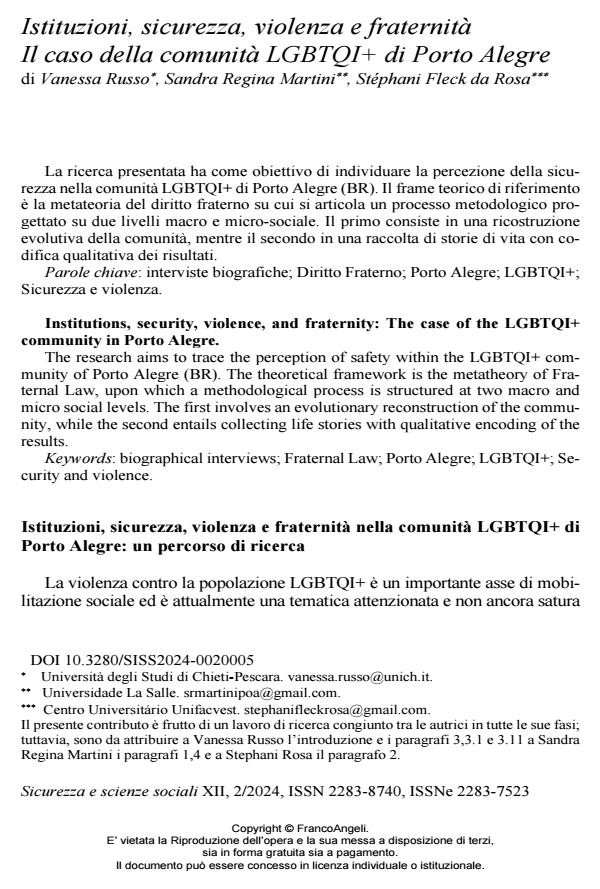Institutions, security, violence, and fraternity: The case of the LGBTQI+ community in Porto Alegre
Journal title SICUREZZA E SCIENZE SOCIALI
Author/s Vanessa Russo, Sandra Regina Martini, Stéphani Fleck da Rosa
Publishing Year 2024 Issue 2024/2
Language Italian Pages 17 P. 54-70 File size 243 KB
DOI 10.3280/SISS2024-002005
DOI is like a bar code for intellectual property: to have more infomation
click here
Below, you can see the article first page
If you want to buy this article in PDF format, you can do it, following the instructions to buy download credits

FrancoAngeli is member of Publishers International Linking Association, Inc (PILA), a not-for-profit association which run the CrossRef service enabling links to and from online scholarly content.
The research aims to trace the perception of safety within the LGBTQI+ com-munity of Porto Alegre (BR). The theoretical framework is the metatheory of Fra-ternal Law, upon which a methodological process is structured at two macro and micro social levels. The first involves an evolutionary reconstruction of the com-munity, while the second entails collecting life stories with qualitative encoding of the results.
Keywords: biographical interviews; Fraternal Law; Porto Alegre; LGBTQI+; Security and violence.
Vanessa Russo, Sandra Regina Martini, Stéphani Fleck da Rosa, Istituzioni, sicurezza, violenza e fraternità Il caso della comunità LGBTQI+ di Porto Alegre in "SICUREZZA E SCIENZE SOCIALI" 2/2024, pp 54-70, DOI: 10.3280/SISS2024-002005